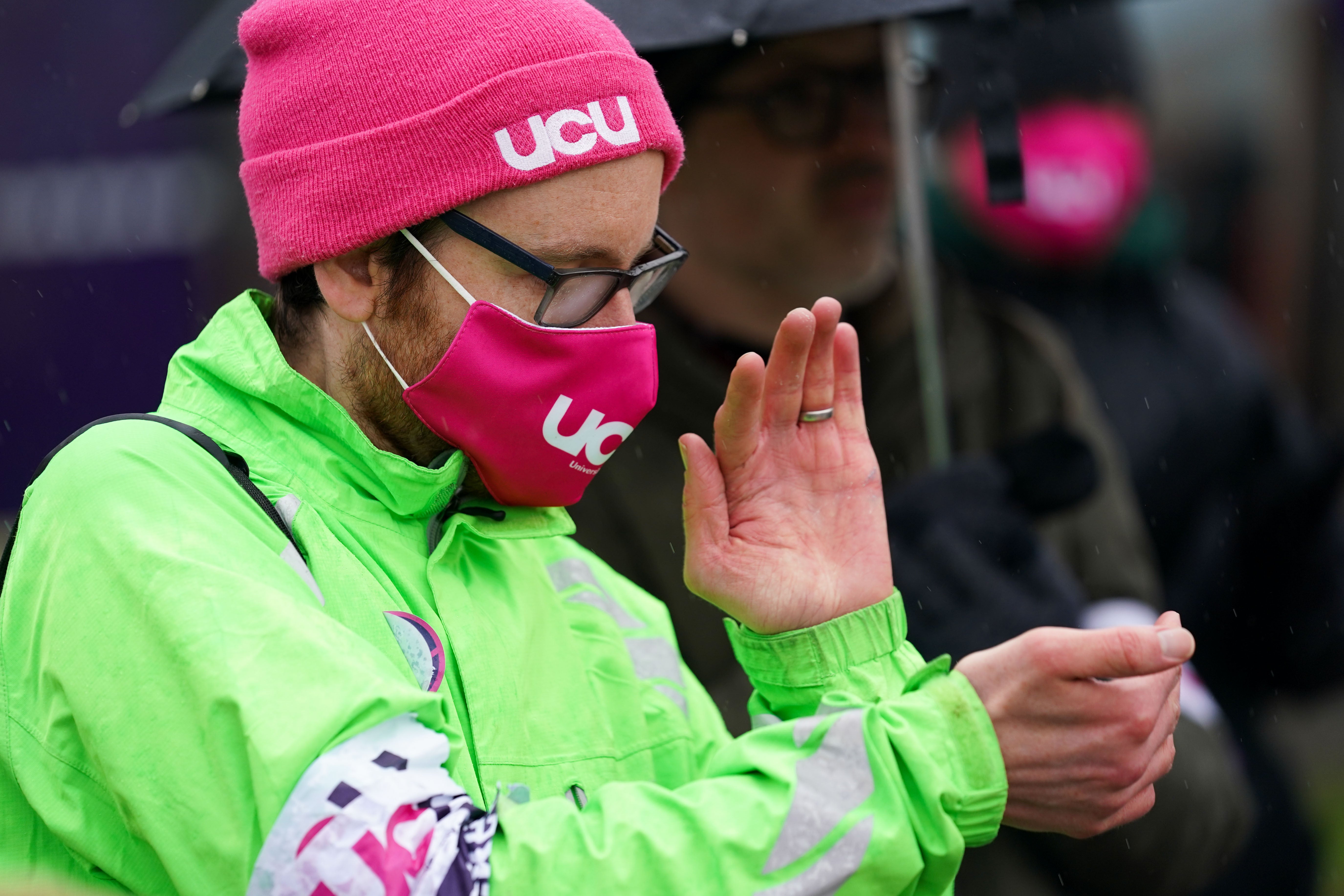Students support striking lecturers with cake and biscuits
Students say their lecturers have gone ‘far beyond their contractual obligations’ to support them as they back staff on strike.

University lecturers have said the response from students to ten days of strikes starting today over pay, pensions and working conditions has been “overwhelming”.
Students at 68 institutions will see their lecturers walk out in disputes over “beyond disgraceful” pay, conditions and pensions, the University and College Union (UCU) has said.
Striking lecturers have reported being buoyed by the support from students, with some undergraduates bringing cakes and biscuits to the picket line.
University and College Union (UCU) general secretary Jo Grady said that the “response from students has been overwhelming and I want to thank every single one of them for standing with us”.
Henry Stead, a Latin lecturer at St Andrews University, said that student support was “hugely important” for staff, adding that students had brought cakes and biscuits to the picket to boost morale.
“None of us want to be out on strike,” he told the PA news agency.
“We hate how these issues are impacting our students. So, it’s great to know that they understand and even better, that they are standing with us.”
“They were bringing us biscuits and cakes – they were organised,” he added.
“They know exactly what’s going on and are behaving like politically engaged citizens. It’s so nice to see. If the student support wasn’t there, I think many colleagues would find it really hard.”
Some Classics students at St Andrews appeared holding placards that read “Honk, haec, hic” – a play on words of “hic, haec, hoc” from Latin rote learning.
Dr Stead’s sign read “Perdidistis omnia”, which he said is from “the Roman poem by Catullus, and means “You have ruined everything”.
Anjum Nahar, postgraduate president at Cambridge Students’ Union, spoke at the picketing rally outside the Old Schools site, where she said students had stood in solidarity with staff since 2018 and blamed the university for “dithering and delaying” when it came to the financial pressures and high workload faced by staff and students.
“We’ve stood with you on the pickets, brought you tea and coffee, and have even occupied buildings to get management to pay attention,” she said.
“Four years and a pandemic later, the pensions dispute hasn’t gone away even though many of the students who were here at the beginning have graduated.
“Those against the strikes often make the quite valid point that reduced contact hours have a negative impact on student mental health. The root causes of both the staff and student mental health crises are the same; high workloads and financial hardship.
“But it’s the university that’s dithering and delaying when it comes to these issues, while staff work tirelessly, day and night to provide pastoral care to students.
“We support the strikes because many of us want academic careers, and don’t want to be in the same precarious position that our lecturers and supervisors are in today.”
Last week, student campaign group QMUL Solidarity described Queen Mary University of London’s response to the strike as “shocking” and accused it of spreading “misinformation” in emails to students about the strike.
The group added that it supported the strike, as did “the majority of our cohort”.
London School of Economics student Len Metson wrote on social media: “Students have already faced unprecedented disruption and strikes only increase this.
“However, it has always been my teachers and lectures who have gone far beyond their contractual obligations to support me so I think it is only right that we stand with them now.”
UCEA, which is representing employers in the dispute, said that the strike so far had had “little impact” on Monday.
Raj Jethwa, UCEA’s chief executive, said there had been “low levels of disruption” but that it was “disappointing” that UCU was continuing “to encourage what is, albeit a small minority of its members, to take strike action once again”.
He added: “It does, of course, take time for these large organisations to find out exactly how many scheduled classes have not taken place on a given day”, and said that some universities cannot provide details at this time, while others had no teaching scheduled.
“We are disappointed that UCU is encouraging its members to target students who have endured so many recent disruptions,” he said.
Bookmark popover
Removed from bookmarks